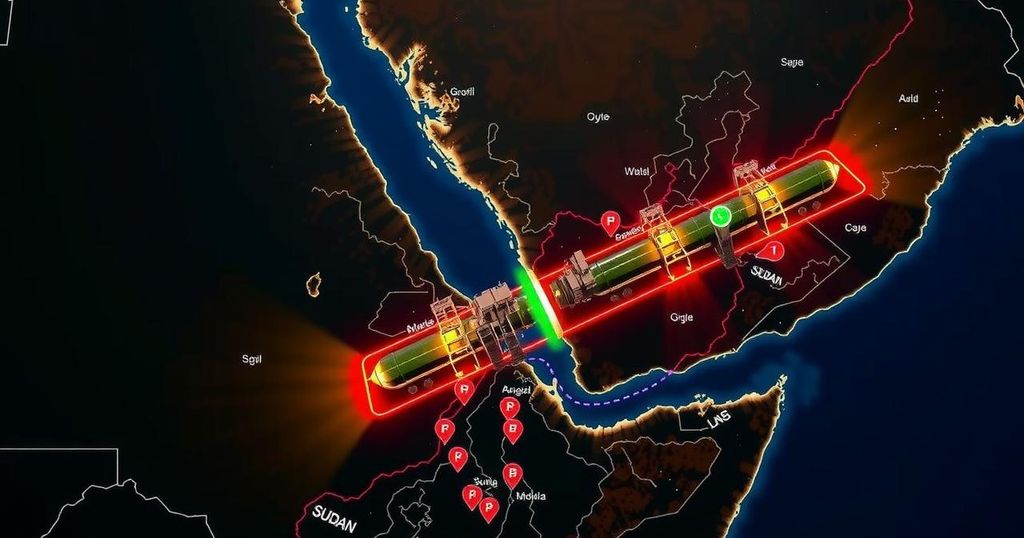Sudan and South Sudan Address Oil Export Challenges

On October 20, 2023, Sudan and South Sudan officials emphasized the necessity of overcoming challenges to resume South Sudan’s oil exports through Sudan. Discussions involved General Abdel Fattah Al-Burhan of Sudan and Tut Gatluak of South Sudan, highlighting South Sudan’s readiness to honor agreements for enhanced oil production and transportation amid ongoing conflict in Sudan.
On October 20, 2023, officials from Sudan and South Sudan convened to discuss resolving issues affecting the resumption of oil exports from South Sudan through Sudanese territory. This meeting followed a discussion between General Abdel Fattah Al-Burhan, Chairman of Sudan’s Transitional Sovereign Council and Supreme Commander of the Sudanese Armed Forces, and Tut Gatluak, Presidential Advisor on National Security for South Sudan, which took place in Port Sudan. Tut Gatluak noted that technical teams from both nations are prepared to boost oil production and facilitate its transportation via Sudan’s Bashayer port, underscoring South Sudan’s commitment to fulfilling agreements reached with the Sudanese government. He further expressed the critical importance of oil to both nations’ economies. Earlier in March, the Sudanese administration halted oil exports from South Sudan due to damage in the transportation network. Sudanese officials indicated that the disruption stemmed from a blockage in an underground pipeline located in northern White Nile State, controlled by the paramilitary group Rapid Support Forces (RSF). This recent meeting follows discussions that occurred in early June, highlighting the ongoing collaboration between the two governments. Oil exports are vital for South Sudan’s revenue, as the nation relies significantly on Sudan for access to international markets. While Sudan is currently facing severe challenges due to a protracted and deadly conflict between the Sudanese Armed Forces and the RSF, which has resulted in substantial casualties since mid-April 2023, the restoration of oil transport remains a crucial goal for both countries.
The relationship between Sudan and South Sudan is underscored by their mutual dependency, particularly with regard to oil exports. South Sudan, which became an independent nation from Sudan in 2011, possesses significant oil reserves but lacks the means to export oil independently. Consequently, it relies on Sudan’s infrastructure to transport its oil to global markets. However, the ongoing conflict in Sudan between the SAF and the RSF has disrupted operations, prompting the need for dialogue and cooperation to ensure the resumption of oil exports.
The recent discussions between Sudan and South Sudan demonstrate a concerted effort to overcome logistical challenges hindering oil exports, which are crucial for both countries’ economies. With the readiness of technical teams to address production and transportation issues, there is potential for renewed cooperation despite the backdrop of conflict in Sudan. The successful resolution of these obstacles will be critical for both nations as they navigate their economic dependencies.
Original Source: www.newtimes.co.rw








